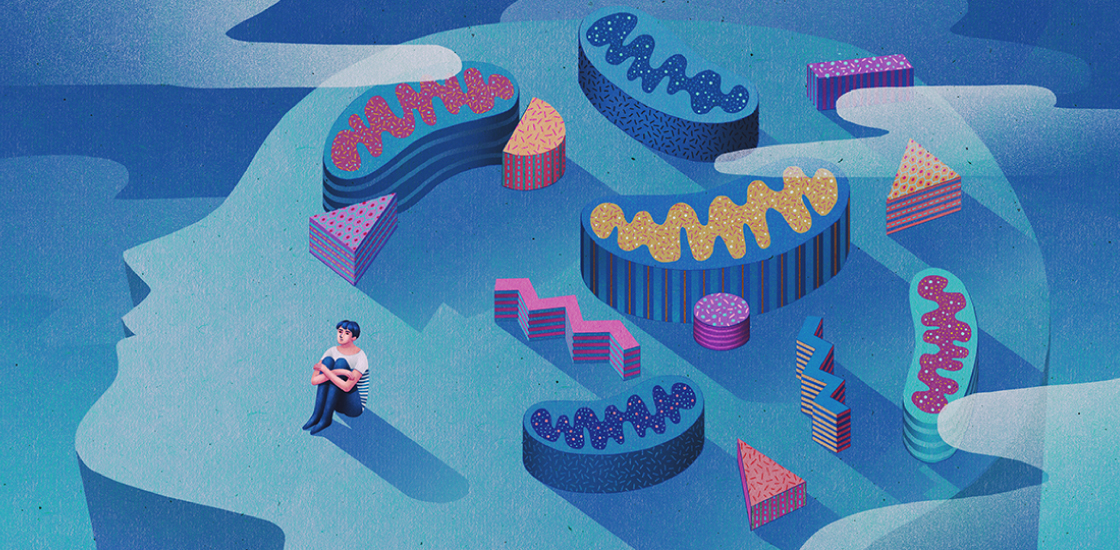Mutations in mitochondria genes may raise autism risk
Some children with autism carry harmful mutations in the DNA found in mitochondria, the cell’s energy producers.

Some children with autism carry harmful mutations in the DNA found in mitochondria, the cell’s energy producers, a new study shows1. A single neuron carries thousands of mitochondria, so the mutations could contribute to autism by disrupting the brain.
About 5 percent of people with autism — compared with 0.6 percent of the general population — have disorders that arise from harmful mutations in many copies of mitochondrial DNA. Other people with autism may have mutations in only a few copies of the DNA, producing mild features. These observations are based on small studies with variable methods, however.
The new study is among the largest of this type and suggests that harmful, spontaneous mutations in mitochondrial DNA more than double the risk of autism.
“There may be a subtype of autism caused by mitochondrial DNA mutations,” says lead investigator Zhenglong Gu, associate professor of human ecology at Cornell University.
Gu and his colleagues mined mitochondrial DNA sequences from the National Database for Autism Research. They focused on 903 families that have one child with autism and at least one unaffected child.
Their search turned up mutations in 191 children with autism and 182 unaffected siblings. Children with autism and their siblings have similar numbers of mutations, on average.
But differences between the two groups emerged when the researchers narrowed their focus to children who carry harmful mutations in only a few copies of their mitochondrial DNA.
Heavy blow:
Children with autism carry more than twice as many harmful mutations as their unaffected siblings. These mutations either alter a protein’s function or are associated with a health condition. Siblings inherit identical mitochondrial DNA from their mother, so the mutations appear to be spontaneous. The results were published 28 October in PLOS Genetics.
Children with intellectual disability or extreme difficulty with social interaction have more harmful mutations than other children with autism.
“They find very convincing differences,” says John Jay Gargus, director of the Center for Autism Research and Translation at the University of California, Irvine, who was not involved in the study.
How mutations in mitochondrial DNA contribute to autism is unclear. Although mitochondria are present in every cell of the body, an energy deficit may hit the brain harder than other organs, says Thomas Bourgeron, professor of genetics at the Institut Pasteur in Paris, who was not involved in the study.
“Most people will say that if it’s mitochondrial, you will be sick everywhere. But in fact, you can have very localized effects,” Bourgeron says. A heavy blow to the brain’s energy reserves could directly underlie some features of autism, he says.
A separate study published in October in Cell Reports bolsters the link between mitochondria and autism: Children with tuberous sclerosis, a rare genetic syndrome linked to autism, have difficulty recycling mitochondria in their neurons2.
References:
Corrections
This article has been modified from the original. Zhenglong Gu is at Cornell University, not Columbia University.
Recommended reading

Expediting clinical trials for profound autism: Q&A with Matthew State

Too much or too little brain synchrony may underlie autism subtypes
Explore more from The Transmitter

This paper changed my life: Shane Liddelow on two papers that upended astrocyte research
Dean Buonomano explores the concept of time in neuroscience and physics

